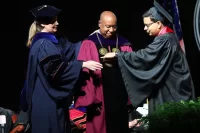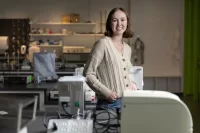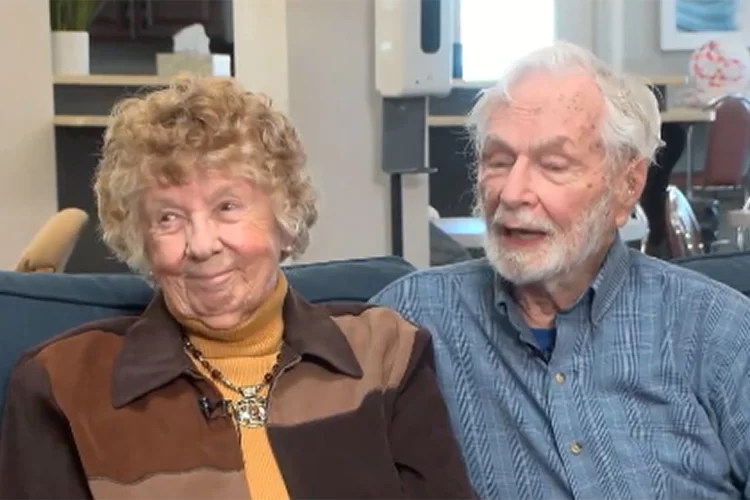
A selection of recent mentions of Bates and Bates people in the news.
Ralph Sylvester ’50
Lewiston and Auburn mark Veterans Day — Lewiston Sun Journal
The Lewiston Sun Journal led its Veterans Day coverage with the story of World War II Army veteran Ralph Sylvester ’50, now 98 years old.
As staff writer Steve Sherlock wrote, “Perhaps no one among the hundreds who attended Friday’s solemn ceremony at Veterans Memorial Park has observed more Veterans Day services than Ralph Sylvester of Auburn.”
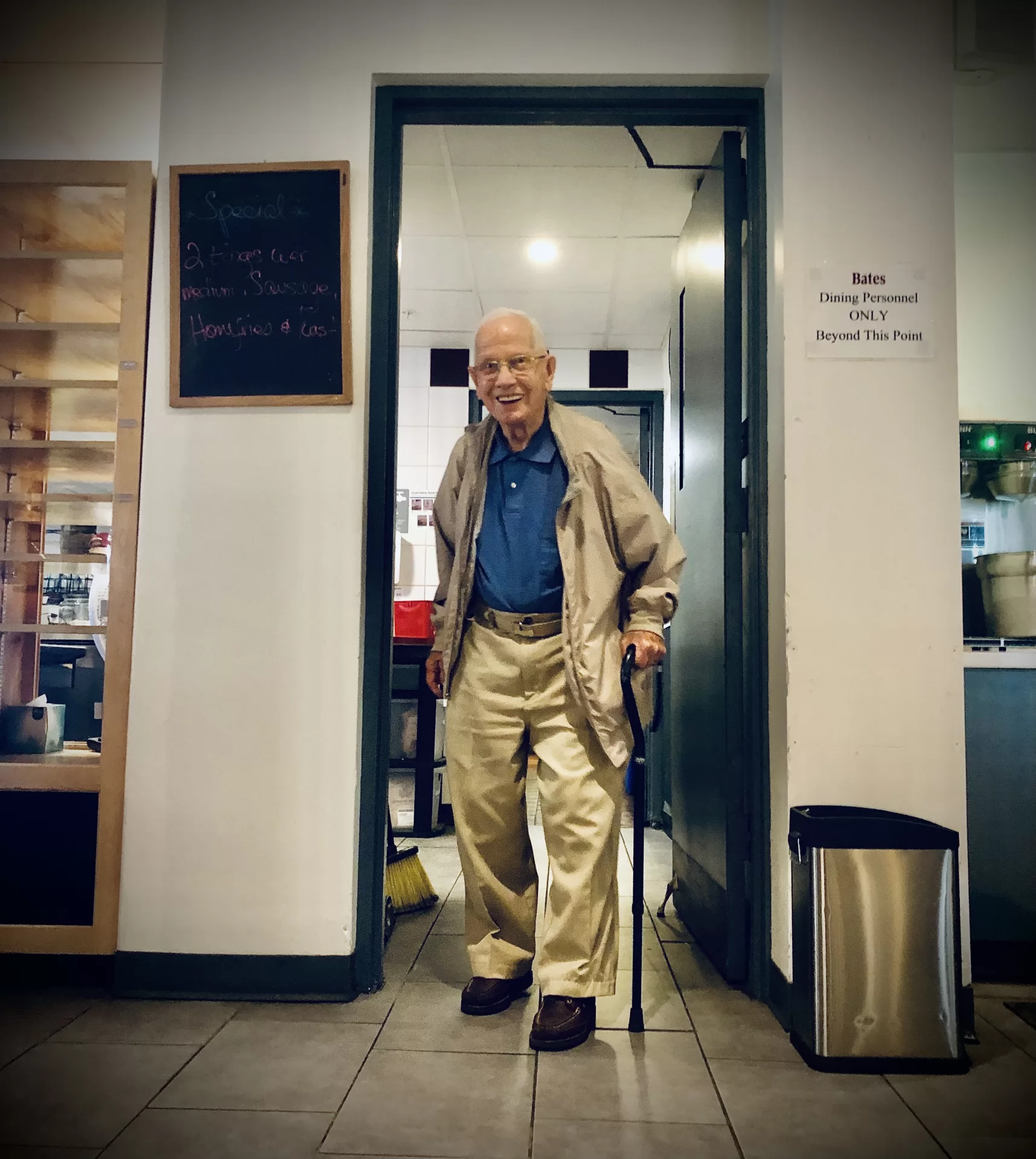
Sylvester fought on the beaches of Normandy on D-Day and in the Battle of the Bulge. A private in the 295th Combat Engineers, “he built bridges over the Elbe River that enabled the American and British armies from the west and Soviet Union forces in the east to first link up near the end of the war in 1945.“
The 98-year-old veteran of World War II was on Omaha Beach on D-Day, fought in the Battle of the Bulge and built bridges over the Elbe River that enabled the American and British armies from the west and Soviet Union forces in the east to first link up near the end of the war in 1945.
“Today brings back a lot of memories of all the others that were killed,” Sylvester told the paper. “About 20 percent of our company got killed during the Battle of the Bulge where 3,500 anti-tank mines were unbeknownst to us.”
- Read the story: “Lewiston and Auburn mark Veterans Day, honor activist Bert Dutil with granite bench,” Lewiston Sun Journal, Nov. 11, 2022
Edmund Muskie ’36
Pollution still flows through Clean Water Act loophole — E&E News
Among the many stories noting the 50th anniversary of the enactment of the Clean Water Act, on Oct. 18, 1972, E&E News took a deep look at the difficult decisions that Sen. Ed Muskie ‘36 and fellow lawmakers had to make as they crafted the landmark legislation.
One decision was not to try to address what is known as “nonpoint source pollution,” which refers to pollutants like pesticides, oil, and fertilizers that flow into waterways from land.
In crafting the legislation in the early 1970s, lawmakers just couldn’t find the right “vehicle” to tackle nonpoint source pollution, still mostly unregulated today.
“It’s an area where there’s still conceptual problems as well as sort of drafting problems and just generally regulatory problems,” recalled Tom Jorling, then counsel to the Republican minority of the Senate Public Works Committee.
“I still haven’t seen anybody recommend something that would work,” he added. “It’s not so much that it wasn’t done in ’72; it’s being honest and saying it hasn’t been able to be done correctly in 2022.”
- Read the story: “Pollution still flows through Clean Water Act loophole,” E&E News, Oct. 18, 2022
Mana Abdi, OIE staff
Lewiston woman makes history as one of the first two Somali Americans elected for Maine Legislature —
Mana Abdi, the program coordinator in the Office of Intercultural Education at Bates, is one of two Somali Americans elected to the Maine Legislature this year, the first ever in the state’s history.
Her win is a sign that the Legislature is becoming more representative of the people it serves, Abdi tells the Lewiston Sun Journal, and it brings Maine “one step closer” to a brighter future for everyone.
“Lewiston deserves safe, affordable, available housing and good jobs,” Abdi said. “I will be a strong and relentless voice for our community in Augusta.”
Read the stories:
- “Lewiston’s Mana Abdi to be first Somali-American lawmaker in Maine,” The Lewiston Sun Journal, Nov. 8, 2022
- “Lewiston woman makes history as one of the first two Somali Americans elected for Maine Legislature,” NEWS CENTER Maine, Nov. 9, 2022
Daniel Hoffman ’85
My late wife Kim taught me how to honor our loved ones by focusing on something that will outlast us — Fox News
In an opinion piece for Fox News, Daniel Hoffman ’85, a former CIA station chief and a Fox News contributor, writes about the legacy of his late wife, Kim Hoffman, who died in 2021 of cancer. Their son, Jerron Hoffman, has dedicated himself to helping children who are in the hospital with cancer.
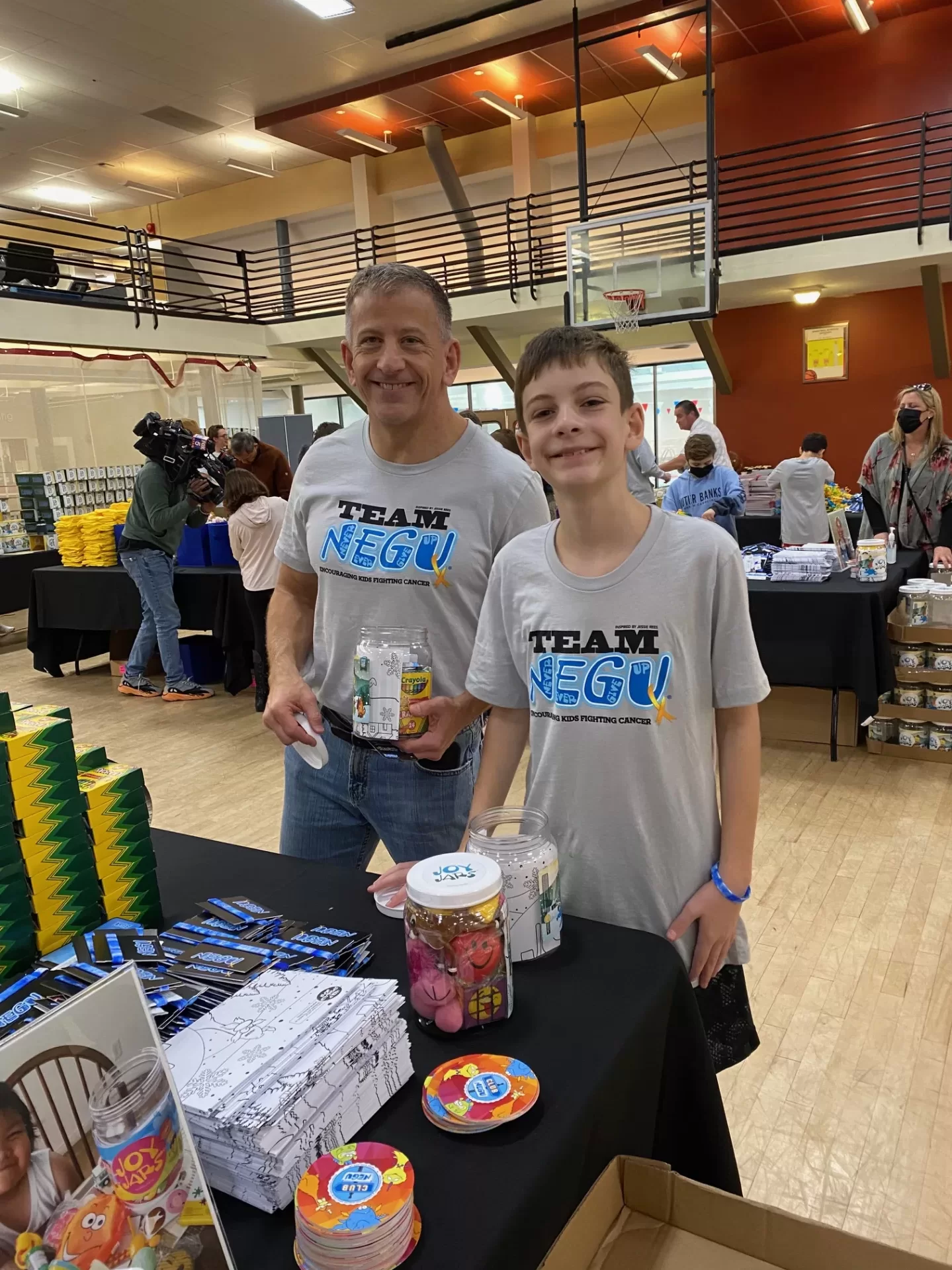
“I realized that families in the fight against cancer or grieving for their lost loved ones cancer stole from them had so much in common,” Hoffman writes. “Cancer forges the common ground among us, from which we derive strength from one another.”
- Read the story: “My late wife Kim taught me how to honor our loved ones by focusing on something that will outlast us,” Fox News, Oct. 7, 2022
Beverly Johnson, earth and climate sciences faculty
Study shows Gulf of Maine cooling for 900 years, then quickly warming since late 1800s — ScienMag
The water off the Gulf of Maine is warming rapidly. New research co-authored by Beverly Johnson, a professor of earth and climate sciences, demonstrates that the recent warming reverses 900 years of cooling and is accompanied by shifts in ocean currents.
The findings were published in the open-access journal Communications Earth & Environment and reported in ScienMag.
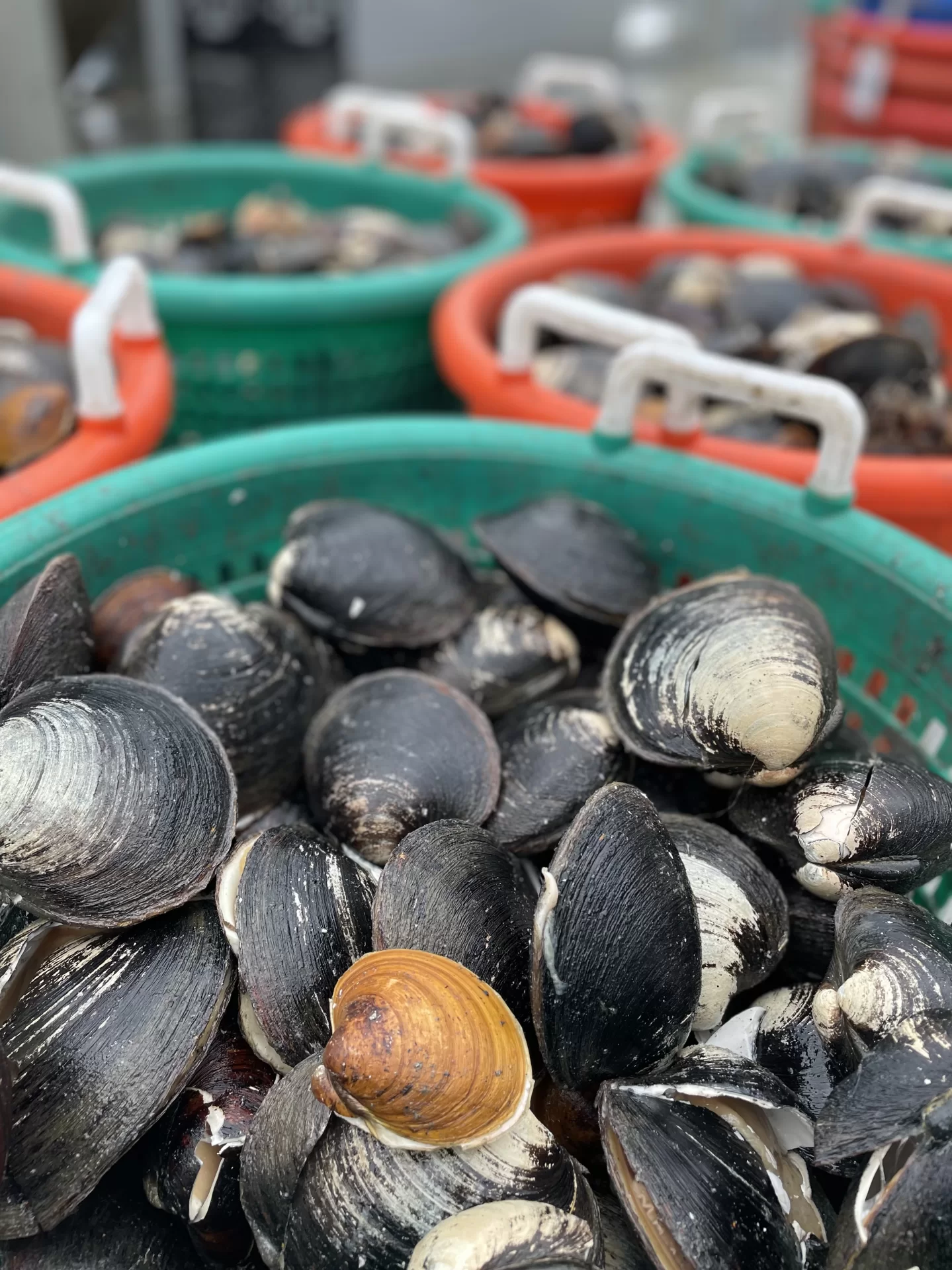
The findings? During the late 1800’s, coinciding with the emerging industrial revolution, the Gulf of Maine began to warm and to receive more water from the Gulf Stream, with a main driving factor being greenhouse gas emissions. At the current rate, the water in the Gulf of Maine could increase by 4 degrees Celsius, every 100 years.
- Read the story: “Study shows Gulf of Maine cooling for 900 years, then quickly warming since late 1800s,” ScienMag, Aug. 15, 2022
Jonathan Adler ’00
Psychology in the theater with PSPR editor Jonathan Adler — Society for Personality and Social Psychology
In 2019, Jonathan Adler ’00, a professor of psychology at Olin College of Engineering, was seeking a way to tell lesser-known stories from the AIDS pandemic in the U.S.
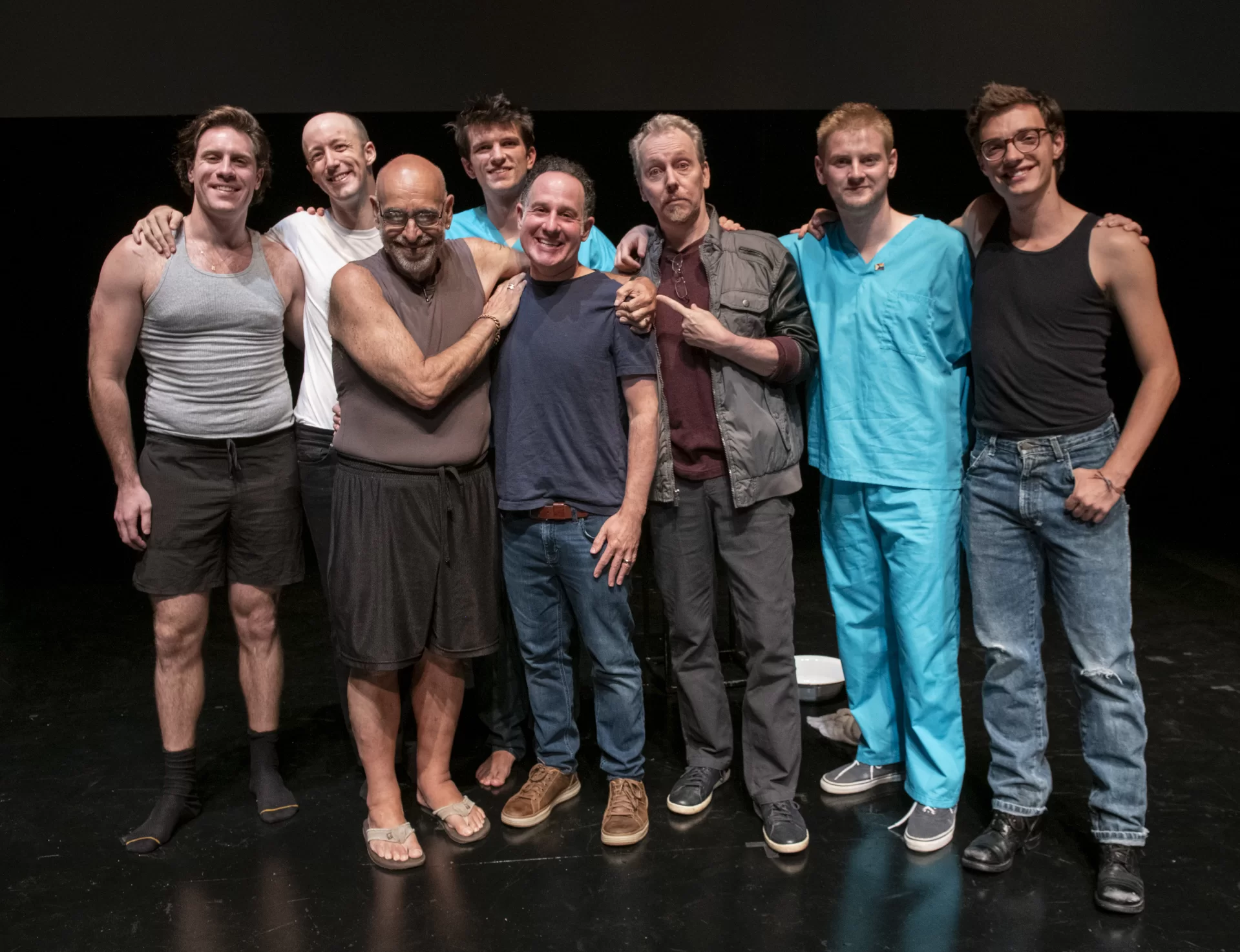
Part of a team at Olin that received a Mellon Foundation grant aimed at integrating arts and STEM, he teamed up with Jim Petosa of Boston University to write a play, Reverse Transcription, which juxtaposes the stories of gay men during the AIDS and the COVID pandemics in the U.S. It premiered off-Broadway last summer at The Atlantic Theater Co.’s Stage 2, produced by PTP/NYC.
“For me there is no separating psychological issues and theater,” he told the newsletter of the Society for Personality and Social Psychology. (Adler edits the SPSP’s journal.) “Like all stories, all plays feature characters trying to do something, so there are always psychological topics to explore.”
Adler believes that “one of the biggest tragedies” of COVID is that society didn’t embrace the psychological lessons learned during the AIDS pandemic. “The gay community came together in the ’80s and ’90s,” but during COVID, the pandemic “ultimately became a force for polarization, not interdependence.”
- Read the story: “Psychology in the theater with PSPR editor Jonathan Adler,” Society for Personality and Social Psychology, Sept. 2, 2022
Whitney Blanchard Soule ’90
Meet Whitney Soule, leader of the team who decides whether you get into Penn — The Philadelphia Inquirer
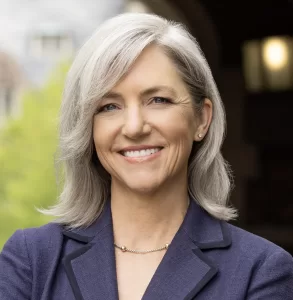
University of Pennsylvania Vice Provost and Dean of Admissions spoke with The Philadelphia Inquirer about her career in college admission, which started at Bates.
She had been a tour guide at Bates, and right after graduation the office had an unexpected opening and “needed someone right away. I was hired into a nine-month position, and 30 years later, here I am, still working in admissions! I love it because the work is human-centered, mission-driven, and complex.”
- Read the story: “Meet Whitney Soule, leader of the team who decides whether you get into Penn,” The Philadelphia Inquirer, Oct. 1, 2022
Noah Petro ’01
What the Moon can tell us about Earth — Axios
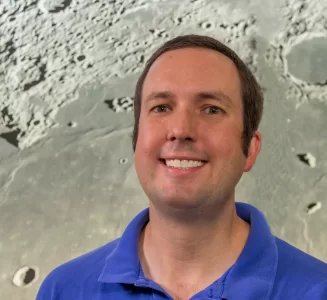
A project scientist for the Lunar Reconnaissance Orbiter mission, currently orbiting the Moon, Noah Petro ’01 told Axios that he thinks of the Moon as “the eighth continent of the Earth.”
The Nov. 16 launch of Artemis 1, the first in a series of missions to build a long-term human presence at the Moon, takes a step towards understanding the history of our own home planet a little more, he says.
The Apollo missions sent humans “to these really wonderful locations,” Petro said. “All of the six landing sites are really amazing. But we never went back.”
“Part of the area where the Artemis missions will be exploring is on the rim of this enormous basin,” Petro said. “We don’t know how old it is. So for me, understanding the age of that crater becomes a very important point in the history of the Earth and the Moon’s history in its formation.”
- Read the story: “What the Moon can tell us about Earth,” Axios, Sept. 6, 2022


